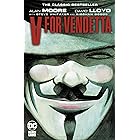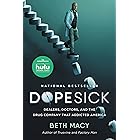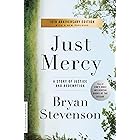Learn more
These promotions will be applied to this item:
Some promotions may be combined; others are not eligible to be combined with other offers. For details, please see the Terms & Conditions associated with these promotions.
Your Memberships & Subscriptions

Download the free Kindle app and start reading Kindle books instantly on your smartphone, tablet, or computer - no Kindle device required.
Read instantly on your browser with Kindle for Web.
Using your mobile phone camera - scan the code below and download the Kindle app.



 Audible sample
Audible sample Follow the author
OK
We Own This Game: A Season in the Adult World of Youth Football Kindle Edition
Although its participants are still in grade school, Pop Warner football is serious business in Miami, where local teams routinely advance to the national championships. Games draw thousands of fans; recruiters vie for nascent talent; drug dealers and rap stars bankroll teams; and the stakes are so high that games sometimes end in gunshots. In America’s poorest neighborhood, troubled parents dream of NFL stardom for children who long only for a week in Disney World at the Pop Warner Super Bowl.
In 2001, journalist Robert Andrew Powell spent a year following two teams through roller-coaster seasons. The Liberty City Warriors, former national champs, will suffer the team’s first-ever losing season. The Palmetto Raiders, undefeated for two straight years, will be rewarded for good play with limo rides and steak dinners. But their flamboyant coach (the “Darth Vader of Pop Warner coaches”) will face defeat in a down-to-the-wire playoff game.
We Own This Game is an inside-the-huddle look into a world of innocence and corruption, where every kickoff bares political, social, and racial implications; an unforgettable drama that shows us just what it is to win and to lose in America.
“Powell elevates We Own This Game well above the average sports book to a significant sociological study.” —San Francisco Chronicle
Customers who bought this item also bought
Editorial Reviews
Review
About the Author
In 2001, journalist Robert Andrew Powell spent a year following two young teams through rollercoaster seasons. The Liberty City Warriors, former national champs, will suffer the team’s first-ever losing season. The inner-city kids of the Palmetto Raiders, undefeated for two straight years, are rewarded for good play with limo rides and steak dinners. But their flamboyant coach (the Darth Vader of youth football”) will be humbled by defeat in a down-to-the-wire playoff game. TITLE OF BOOK is an inside-the-huddle look into a world of innocence and corruption, where every kickoff bares political, social, and racial implications. By an award-winning journalist whose work has appeared in The Best American Sports Writing, it is an unforgettable drama that shows us just what it is to win and to lose in America.
INTRODUCTION
A portrait of Miami, a city whose government, even after race riots which crippled the black community in the 80s, serves the interest mostly of the Cuban-American constituency and has been rocked by various political scandals (bribery, fiscal mismanagement, etc.). The author tells how he witnessed inner-city blacks find hope and identity during a high school football semifinal that was attended by tens of thousands. He takes a newspaper assignment covering Pop Warner football games and sees much he admires (a depressed community proud that its boys could do something better than anyone else”) but also the corruption of sport at its infancy” (recruiting, fans assaulting the coach after the team’s only loss, parents living through their kids, gambling, etc.). He quits his job to cover a season of Pop Warner, from the first day to the last game, attending every single season and game of the 95-pound Gwen Cherry Bulls, whose coach is dubbed the Darth Vadar of Pop Warner’.
Prologue
Registration day. Coach Brian Johnson of the Liberty City Warriors is introduced as he prints out ridiculously complicated game strategies for his team, based on the Georgia Southern Eagles game plans. It is his first year as head coach and he is determined to prove himself. I wouldn’t be a man if I didn’t aspire to run my own team.”
We’re introduced to the Darth Vadar of Pop Warner” Raul Campos, the ostentatious coach of the 110-pound Palmetto Raiders, who is editing a video hyping his team as the greatest of all time, winners of back-to-back national champions at Disney World Sport Center, undefeated in the last 2 seasons.
We’re introduced to Diamond Pless, a young kid whose uncle was confined to a wheelchair after a shooting with a rival drug dealer, and who is now helping his uncle live his dream of NFL superstardom vicariously
We’re introduced to Mark Peterson, the head of the league who tries without much success to discourage the recruitment of black inner city players to suburban ballparks, and is still torn over last year’s national championship, where a Suniland team made up mostly of recruits won 56-6. The coach lost his job because he ran up the store, but is suing to be reinstated.
CHAPTER ONE: First Practice
The first practice, plus a history of Pop Warner football, the largest youth football league in America, started in 1929 in Philly to prevent youth crime and eventually to over 6,000 teams nationally competing to play in the national chammpion at Disney World.
CHAPTER TWO: Liberty City
A tour of Liberty Citypast the wealthy enclaves of Miami and the poverty of Little Havana is a black neighborhood torn by race riots in the 80s and gang-related assassinations in the 90s. The neighborhood grew out of a black ghetto called Nigger Town which eventually became a progressive experimental black-only community named Knight Manor until a highway ran through it and tore the neighborhood apart. This is wear porno rapper Luther Campbell of 2 Live Crew comes from, who helped found the Liberty City program. Since then, the Warriors have won city championships in 7 of 8 weight divisions and have spawned other all-black parks.
CHAPTER THREE: CAMPOS
Inside the home of the Cuban exile turned real estate wizard Coach Campos, who is hated and called a cracker” and takes his players to games in chartered motor coaches and used to take them in Hummer limos. After being banned from another Pop Warner team, Campos took over the Palmetto team comprised mostly of white suburban kids and replaced them with mostly black players recruited from West Perrine via varsity letter jackets, steak dinnnnnnners, etc.
CHAPTER FOUR: DIAMOND
Diamond’s mom tries to petition for him to get a larger role on the team, but Diamond doesn’t show much promise. Diamond’s uncle Durell describes his gun injury.
CHAPTER FIVE: SUNILAND
We’re introduced to Phillip, whose father is dead from AIDS and whose HIV+ mother’s behavior is erratic because of drugs. He is often left to his own devices. He sees football as his way out. We’re introduced to the Suniland Devils, a suburban team comprised of recruited back players whose coach Gator Rebhan was banned after he ran up the score in a championship game. Rebhan thinks the League is jealous because he took a white ballpark and made it successful.
CHAPTER SIX: GOULDS
The history of the Railroad Shop, a black settlement that developed nearly a century ago, was condemned by the city, but eventually turned black again. Now Goulds is black and poor. In their first game, Liberty City loses to Goulds, with Coach Johnson’s playbook proving way too complex for the pee wees.
CHAPTER SEVEN: SEPTEMBER 11
Warriors lose their second game. News of 9/11 comes, but Florida is very removed from the goings-on in NYC and Washington. The coaches convene at the field despite cancelled games and try to make sense of things.
CHAPTER EIGHT: McADOO
We’re introduced to shadowy figure named McAdoo, who takes care” of high school and college players in vague ways. He’s a street agent, of which every major college sports program has at least one. They operate under the radar, even going so far as to buy cars for young players even though he has no traceable source of income besides selling watermelons and gambling. He points out all of the players he raised” rappers, NFL players, etc. McAdoo’s cash flow is supplemented by his relationships with some of Liberty City’s more prominent entrepreneurs,” including drug dealers and gang members. McAdoo has switched his focus from encouraging kids to go into football to encouraging them to read.
CHAPTER NINE: LIBERTY CITY AT PALMETTO
Liberty City is now 1-4 and their chances at the championship are slipping. A player is hit hard and has to go to the hospital in an ambulance. Coach Johnson is questioning why he even bothers.
CHAPTER ELEVEN: PLEX
The story of drug-related gang violence in Liberty City. Gang members bet up to $10,000 and intimidated coaches and player. Diamond’s father-in-law Plex” was arrested for a murder associated with protecting the distribution channels of a crack laboratory. He is serving 5 life sentences.
CHAPTER ELEVEN: ELECTION
The Elian Gonzalez debaa
Product details
- ASIN : B00512S338
- Publisher : Grove Press (December 1, 2007)
- Publication date : December 1, 2007
- Language : English
- File size : 4.0 MB
- Text-to-Speech : Enabled
- Screen Reader : Supported
- Enhanced typesetting : Enabled
- X-Ray : Not Enabled
- Word Wise : Enabled
- Print length : 253 pages
- Best Sellers Rank: #2,324,465 in Kindle Store (See Top 100 in Kindle Store)
- #1,807 in Football (Kindle Store)
- #7,274 in Football (Books)
- Customer Reviews:
About the author

Robert Andrew Powell is the author of This Love Is Not for Cowards: Salvation and Soccer in Ciudad Juárez and We Own This Game, about race and football in Miami, where he lives.
Customer reviews
- 5 star4 star3 star2 star1 star5 star94%0%6%0%0%94%
- 5 star4 star3 star2 star1 star4 star94%0%6%0%0%0%
- 5 star4 star3 star2 star1 star3 star94%0%6%0%0%6%
- 5 star4 star3 star2 star1 star2 star94%0%6%0%0%0%
- 5 star4 star3 star2 star1 star1 star94%0%6%0%0%0%
Customer Reviews, including Product Star Ratings help customers to learn more about the product and decide whether it is the right product for them.
To calculate the overall star rating and percentage breakdown by star, we don’t use a simple average. Instead, our system considers things like how recent a review is and if the reviewer bought the item on Amazon. It also analyzed reviews to verify trustworthiness.
Learn more how customers reviews work on AmazonTop reviews from the United States
There was a problem filtering reviews. Please reload the page.
- Reviewed in the United States on May 30, 2011Its a must have. As a Miami native and youth football coach, I found that it details all the sad but true aspects of the real Miami-Life. It isnt all beaches and palm trees down here. The book does a great job educating on the history of Miami and the dirty politics in youth football. I was hoping there was a part two or a follow up five to ten years after but nothing as yet. I wasn't able to put it down. Great book for any parent who has a child in youth sports(especially in MIAMI).
- Reviewed in the United States on May 9, 2004For anyone who has participated in youth football to any degree, this book will bring back a lot of memories (good and bad). I am a Floridian living in Texas. I cannot begin to count the number of arguments I have had with Texans concerning Texas vs. Florida football. I was really hoping this book would show up Friday Night Lights and prove that FLA reigns supreme. Sadly for me, it did not do the trick. This is a quick read and will entertain, but it lacks some of the emotional depth of F.N.L. This may be more of a regional favorite describing South Florida very well, but I'm not sure New Englanders or those in the Midwest would find much of the cultural and geographical references all that interesting. I did like it, but just not enough to recommend buying it.












